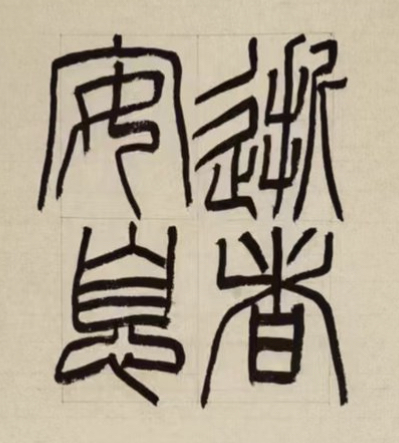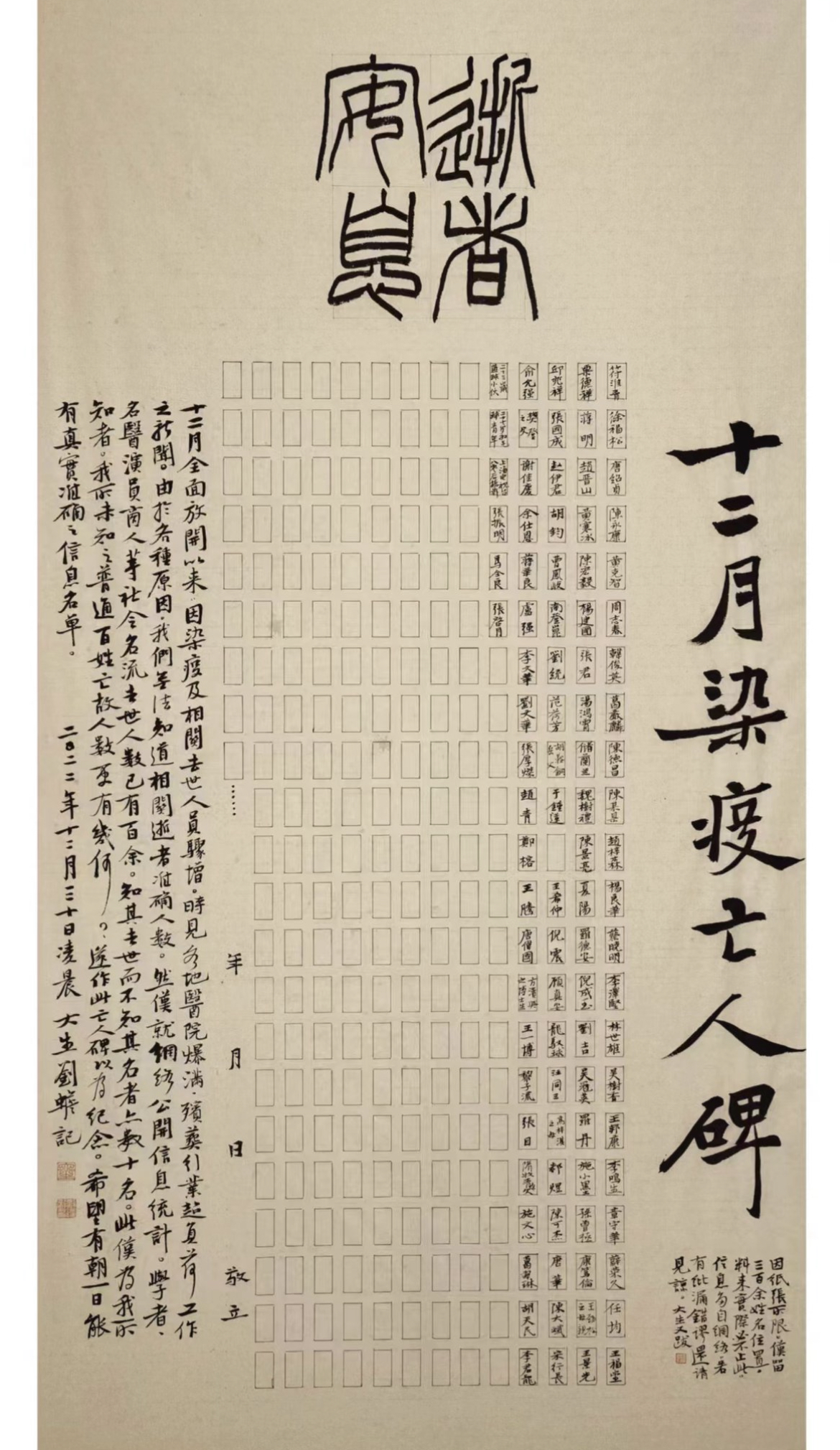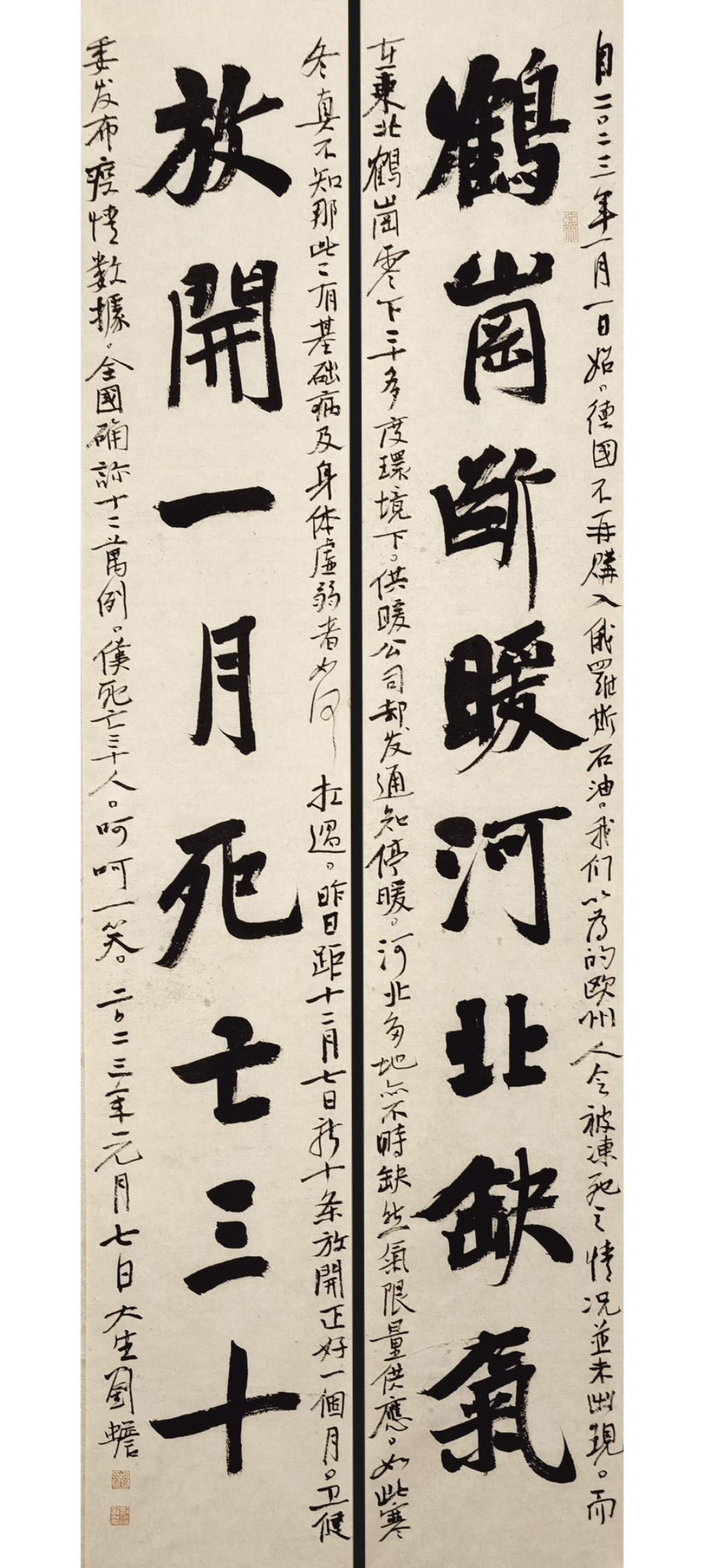The Other China
Ten years ago, in late 2012, we published The Five Vermin 五蠹 Threatening China, which was a translation of ‘Where Are the Real Threats to China?’ 中國真正的挑戰在哪裡 by Yuan Peng 袁鵬.
At the time, Yuan was a leading researcher on America at the China Institutes of Contemporary International Relations (CICIR) in Beijing, a think tank linked to China’s intelligence establishment. His unsentimental view of Chinese society and the relationship between Beijing and Washington was prescient.
Among other things, he focused on the disruptive potential of five groups within China: rights lawyers, underground religious activities, dissidents, Internet leaders and vulnerable groups 維權律師、地下宗教、異見人士、網絡領袖、弱勢群體. Yuan’s New Five Black Categories 新黑五類 recalled both the social and political segregation of the Maoist era as well as reminding students of Chinese history of the attack by the harsh pre-Qin philosopher Han Fei (韓非, ca.280-233BCE) on the notoriously named Five Vermin or Termites 五蠹 wŭ dù. Listed in Book Forty-nine of Han Feizi 韓非子, the Five Vermin or ‘obnoxious people’ are described by Derk Bodde as including:
…men of learning whose eloquence throws the laws into doubt, talkers who promulgate false statements, wearers of swords who assemble their own adherents, and courtiers who use bribery to advance their own interests.
Han Fei warned that, for the state to survive, these obnoxious people must be eliminated. Over the first decade of Chairman of Everything Xi Jinping’s rule, considerable progress has been made in following Yuan Peng’s cruel advice à la Han Fei in the China of today (see also Jianying Zha, China’s Heart of Darkness Prince Han Fei & Chairman Xi Jinping).
We recalled Yuan’s pitiless advice in 2017 and commemorated the numerous individuals who had been silenced or disappeared since 2012. They had been lost to China’s Memory Hole, a chasm in knowing and remembering that, paradoxical for the present age of graphomania and interconnectivity, has grown larger and has engorged more with a voracious appetite. Even then we noted that what does not disappear is distorted beyond recognition.
It is thirty-five years since I wrote My Friend the Memory Hole. In 2023, as the coronavirus continues to ravage the world, China’s state-engineered Memory Hole is expanding in real time. On 30 December 2022, Liu Chan 劉蟾, scholar, artist and social commentator, published a virtual monument to commemorate the dead (he had previously published calligraphic monuments mourning those who died in the Guangxi Bus Crash in mid September and the victims of the Urumqi Apartment Fire in late November). We reproduce it here as an entry in our series The Other China.
‘This is not the China of stentorian slogans, cutting barbs, sarcastic put-downs. It is not the China of clichéd patriotism and exaggerated public performance; nor is it the China of crude stereotypes and bottomless grievance. It is a China of humanity and decency, of quiet dignity and unflappable perseverance. It is a China that finds expression in myriad ways in a country dominated by a political party that would bend all to its will; it is a China that survived the depredations of the Mao era (1949-1978) and increasingly flourished during the decades of reform from 1978 to 2008.
‘The Other China is not limited to the People’s Republic of China, for it is part of a global culture unique to itself but also with universal aspirations and appeal.’
This chapter in The Other China should be read in conjunction with Xi Jinping’s Empire of Tedium.
***
Liu Chan’s work has previously featured in
- Xi Jinping’s Harvest — from reaping Garlic Chives to exploiting Huminerals, 6 January 2023; and,
- Xi Jinping’s Harvest — an anthem for China’s disaffected Huminerals, 7 January 2023)
For an update from 15 January 2023, scroll to the end.
— Geremie R. Barmé, Editor, China Heritage
12 January 2023
***
Liu Chan’s Twitter Account
The Other China
- Liu Chan’s Memorial for the Departed, 12 January 2023
- On Rumours & Lies — Dasheng’s Little Lectures, 16 January 2023
- Brainwashing vs. Educating — Dasheng’s Little Lectures, 17 January 2023
- Resisting Cultural Capture — Dasheng’s Little Lectures, 18 January 2023
- In the Eyes of the Beholder — Dasheng’s Little Lectures, 19 January 2023
Related Material
- Drum Tower, The new wave, The Economist, 11 January 2023
- Chang Che, Claire Fu and Amy Chang Chien, As China Reopens, Online Finger-Pointing Shows a Widening Gulf, The New York Times, 11 January 2023
- Hao Yu, Inside China’s covid-ravaged hospitals, The Economist, 5 January 2023
- Chaguan, The Chinese Communist Party plans to avoid a zero-covid reckoning, The Economist, 5 January 2023
Further Reading from Xi Jinping’s Empire of Tedium
- Chapter Twenty-one 醒 — Awakenings — a Voice from Young China on the Duty to Rebel, 14 November 2022
- Chapter Twenty-two 官逼民反 — Fear, Fury & Protest — three years of viral alarm, 27 November 2022 (see also Appendix XXIII 空白 — How to Read a Blank Sheet of Paper, 30 November 2022; Appendix XXIV 職責— It’s My Duty, 1 December 2022; and, Appendix XXV 贖 — ‘Ironic Points of Light’ — acts of redemption on the blank pages of history, 4 December 2022)
- Chapter Twenty-three — Chinese Time, Part I: 新鬼舊夢— More New Ghosts, Same Old Dreams, 1 January 2023; Part II: 忘卻的紀念 — the struggle of memory against forgetfulness, 2 January 2023

***
A Memorial Stele to Those Who Succumbed
to the Coronavirus in December 2022
12月染疫亡人碑
Liu Chan 劉蟾
December saw a precipitate increase in the number of Covid deaths. Exact figures cannot be ascertained. On the basis of openly available statistics, however, we know that over one hundred public figures have passed away. The dead with no public profile are far more numerous.
Herein, I record the names of those who are known. Who can tell how many others there may be. Regardless, I have created this memorial to honour their memory as well. Due to limited space, I could only leave three hundred spaces for the anonymous dead. I imagine that even this is far too little.
Those named here have featured on the Internet and I beg forgiveness for any inadvertent errors.
— inscribed by Liu Chan in the early hours of 30 December 2022
12月以來染疫去世者驟增。不知準確人數。然僅就公開信息統計,社會名流去世者已有百餘。知其去世而不知其名者亦數十名——此僅為我所知者。我所末知之普通百姓亡故人數,更有幾何?遂作此碑以為紀念。因紙張所限,僅留三百位置,料來實際必不止此。信息多自網絡,若有錯謬,還請見諒。
***

***
A Month Since Deliverance
and Only Thirty Dead!
鶴崗斷暖河北缺氣
放開一月死亡三十
Liu Chan 劉蟾
[Note:
Since 2021, Liu Chan has published terse online commentaries on contemporary events in the form of bold calligraphic couplets. The artist adds pointed, and often sarcastic, exegesis on either side of the couplet.
— GRB]

The Heating is off in Hegang and there is no Gas in Hebei
In the Month after Deliverance only Thirty have Died
Starting on 1 January 2023, Germany no longer imports Russian oil. It turns out that, despite what we had assumed, the Europeans won’t freeze to death this winter [despite their support for Ukraine against the Russian invaders]. Meanwhile, power-suppliers in Hegang, northeast China, where the temperature is under minus thirty Celsius degrees, have notified locals that their heating is being cut. Due to a shortage of fuel gas, restrictions are also being imposed in numerous parts of Hebei province. One can only imagine how the physically frail or people with underlying health conditions will survive the winter.
Yesterday was exactly one month since ‘opening up’ occurred after the implementation of the government’s ‘New Ten-point Covid Optimisation Strategy’, announced on 7 December 2022. To mark the occasion, the National Health Commission released its latest statistics: over the last four weeks there have been 120,000 confirmed cases of coronavirus and only thirteen deaths. U gotta laff!
— Dasheng Liu Chan, 7 January 2023
***
An Update: At Least One Zig to Every Zag
Policy U-turns are fundamental to the governance model of China’s party-state. As Isaiah Berlin noted of Stalin’s Russia: ‘Careful co-ordination of his movements with the dialectical movement of the Party—a semi-instinctive knowledge of the precise instant when zig turns into zag—is the most precious knack that a Soviet citizen can acquire.’
— Quoted in When Zig Turns Into Zag the Joke is on Everyone, China Heritage, 12 December 2022
Until Saturday, 14 January 2023, ‘the Chinese authorities had reported a total of just 5,241 Covid deaths since the pandemic began in the city of Wuhan in late 2019 and that only 37 people had died of Covid since Dec. 7, the day it ended its “zero Covid” policy.’
China recorded 59,938 Covid-related deaths from Dec. 8 to Jan. 12, Jiao Yahui, an official with China’s National Health Commission, said at a news conference in Beijing. That figure included 5,503 people who died of respiratory failure directly caused by Covid. Another 54,435 fatalities were linked to other underlying illnesses, Ms. Jiao said.
Ms. Jiao said China was unable to release the data on Covid-related deaths sooner because it required a comprehensive examination of hospital reporting.
“We organized experts to conduct a systematic analysis on the death cases, so it took a long time,” Ms. Jiao said.
— from David Pierson and Olivia Wang, China Reports Nearly 60,000 Covid-Linked Deaths Since Lifting Restrictions, The New York Times, 14 January 2023
Following the latest volte-face, Li Chengpeng 李承鹏, an independent writer in China, responded with aplomb:
If they never told you how many people really starved to death during the Great Famine, they are not about to tell you how many people are dying from the coronavirus today. In the same way that they’d never reveal how much money they have stashed away in Swiss bank accounts, they’re not going to divulge information about the number of deluxe hospital beds that are reserved for members of the Party elite.
When I read Nineteen Eighty-four I was curious about why the clocks struck thirteen times. [Note: The first line of the novel reads: ‘It was a bright cold day in April, and the clocks were striking thirteen.’] Gradually it dawned on me that statistics and numbers were the exclusive preserve of the Ministry of Truth. Whoever controls the numbers [, what they are and how they are used,] also controls all wealth, the lives of every individual as well as all other rights.
他們沒告訴你大飢荒死了多少人,就不會告訴你這次疫情死了多少人,他們沒告訴你藏了多少錢在瑞士銀行,就不會告訴你有多少間高幹病房。
我讀 《1984》的時候,好奇為什麼時鐘總是敲響13下。後來明白了,數字永遠是真理部的特權。誰掌握了數字發佈權,誰就掌握了財產權,生命權,一切權。
[Note: See also ‘Take it from me, we are losing the war because we can salute too well’, Li Chengpeng’s commentary on the year 2022 in Chinese Time (Part II): 忘卻的紀念 — the struggle of memory against forgetfulness, 2 January 2023.]

